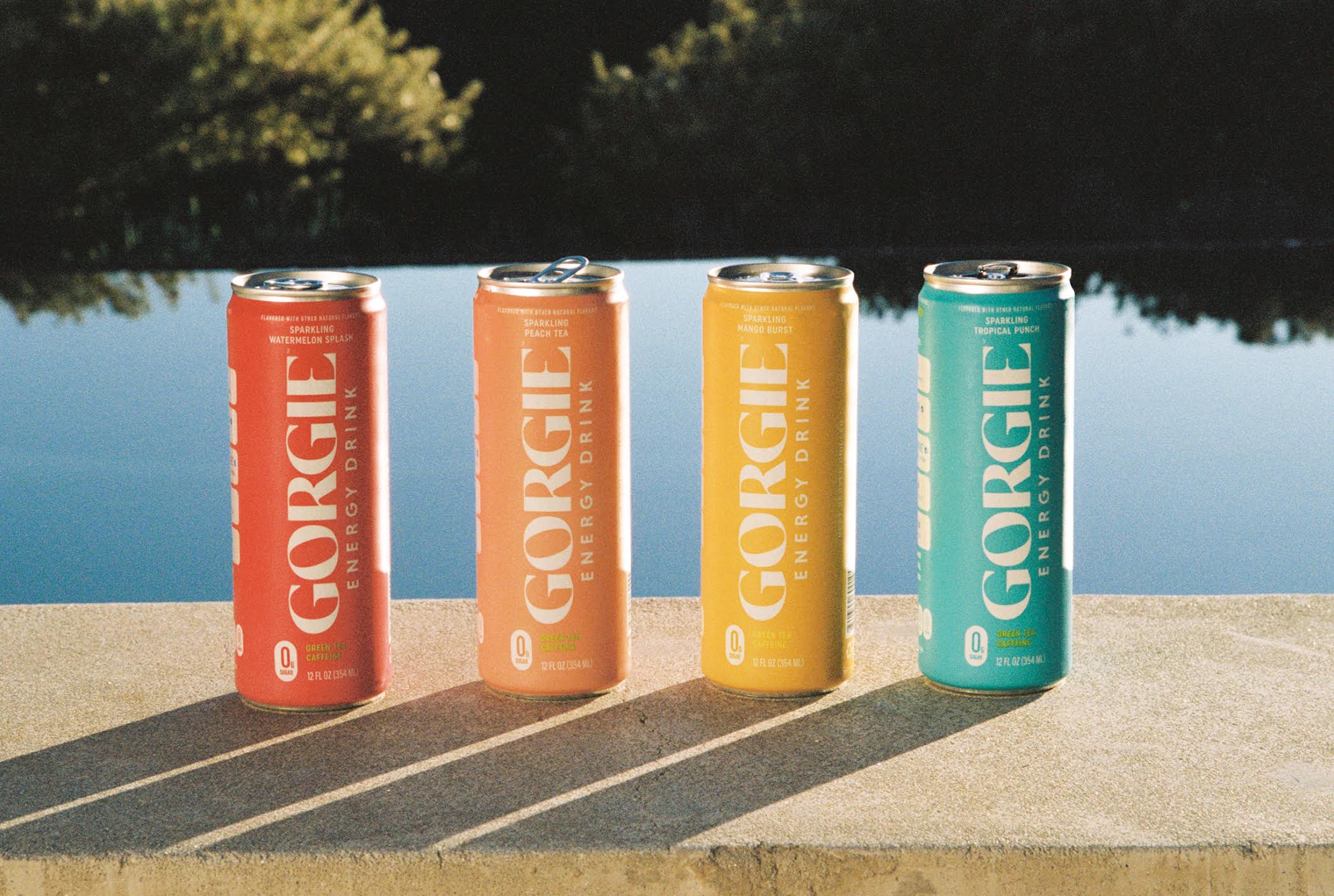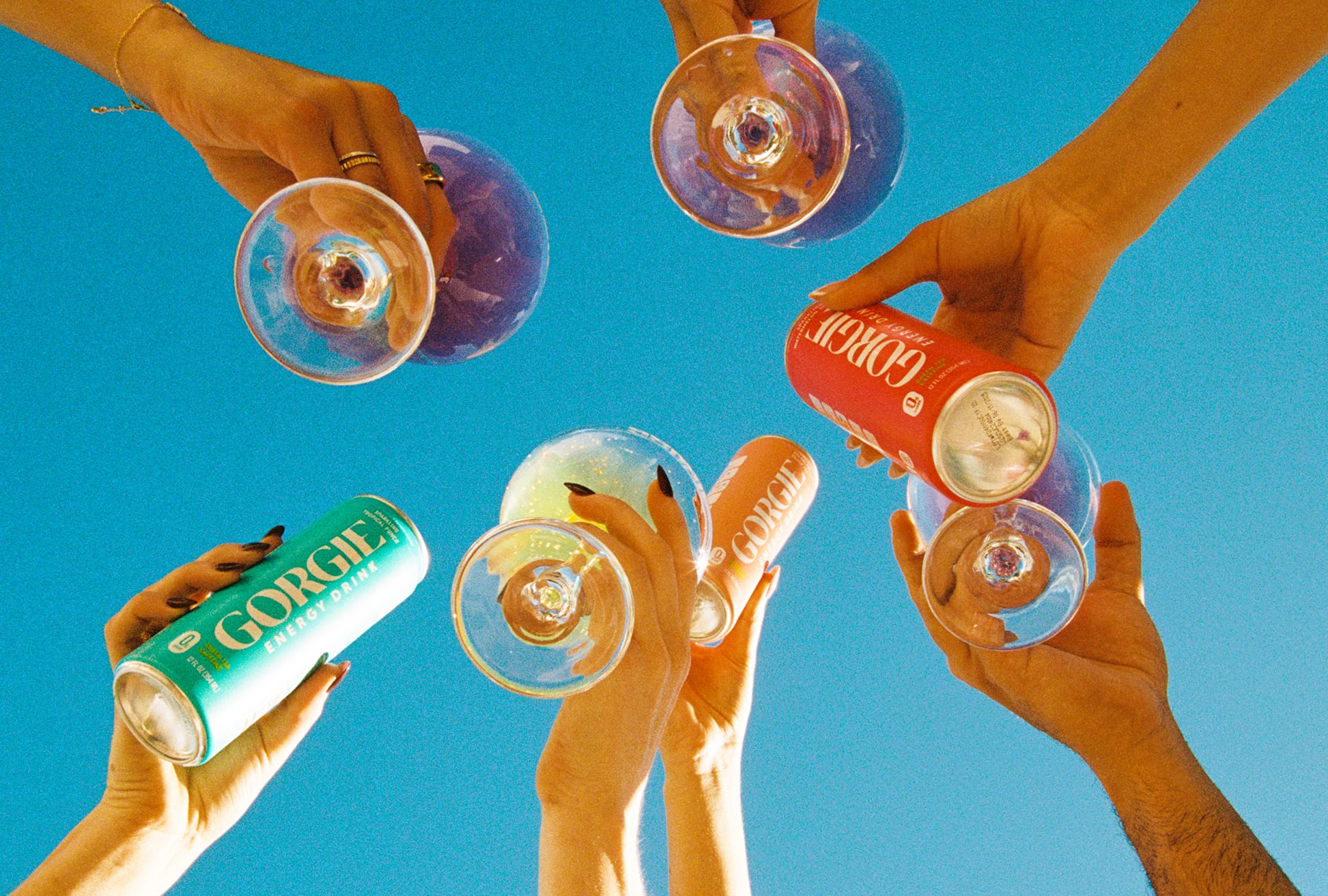Energy drink brand Gorgie’s community-oriented approach to brand building laid out the path to growth from its origins in direct-to-consumer to national retail launches.
Last month, Gorgie launched in 863 Target stores nationwide, following a nationwide launch in Sprouts Farmers Market and Whole Foods Market stores in the Northeast. In honor of summer, Gorgie will launch an exclusive Pink Lemonade flavor for Target consumers.
“Exclusivity helps to ensure that the launch cuts through what is otherwise a busy time in the industry – and shows how appreciative we are of the partnership,” explained Gorgie’s Founder Michelle Grant.

Prior to its retail growth, Gorgie built its business via direct-to-consumer which was driven by an involved community of fans and influencers, according to Grant.
Made with caffeine from green tea and sweetened with stevia leaf, Gorgie aligns with consumers looking for sparkling natural “energy drinks with benefits,” such as biotin, B vitamins and L-theanine, according to the company.
“We like to say that we focus on clean ingredients, and we have the certs to prove it,” including Non-GMO Project Verified, NSF Contents Certified, gluten-free, vegan and Kosher, Grant said.
Gorgie’s Punch flavor also holds an NSF Certification for Sport, targeting professional athletes.
Building ‘viral moments’ in the right channels
The brand relies on its community to inform key details from flavor ideas, ingredient preferences and retail stores, explained Grant.
“Starting with community first will always be our favorite key step and biggest milestone. We got our community’s input on everything from flavors to names, the amount of caffeine and whether to include biotin or branched-chain amino acids,” explained Grant.
When the brand was founded in 2023, Grant took nods from her previously founded ethically-made clothing company Lively to develop “viral moments” via targeted campaigns before a product was even developed, she said.
At Lively, Grant started a refer-a-friend campaign to grow its email list and share the news about the products, which resulted in “over 300,000 sessions and 133,000+ emails” over three days, she explained.
“We did not even have a product before we had email subscribers globally, even with strong enthusiasts in Australia. This showed that it had a concept that we believed in and that resonated with those subscribers,” she said.
With Gorgie, Grant “needed a viral moment like that, too” with TikTok and social media instead of emails, highlighting the importance of identifying the right channel to meet consumers, she explained.
“We posted videos about the idea behind Gorgie with little tasting cups of our fun-colored drink samples. Before we even had a real product, people resonated with the brand, the vibe, the concept that we were creating. They believed in the vision and the approach we were taking to co-create it together,” Grant said.
With a strong fan following, Gorgie also developed activations with retailers, like Erewhon‘s first ever energy drink smoothie and community campaigns to engage consumers.
“Whether it is a scavenger hunt to find a blue sparkly can for free Sabrina Carpenter tickets on us, posting a “shelfie” to get a free PR box, or even our recent tell-a-friend about Target campaign where we had over 10,000 signups in the first week. We keep it fun and fresh to bridge the digital-physical worlds, and we make it easy for them to engage in a fun, light lift way,” she added.

